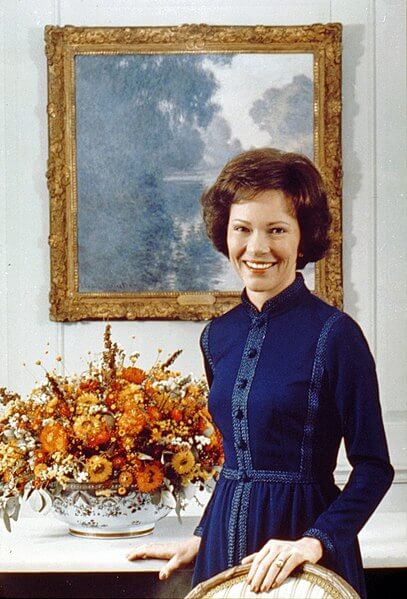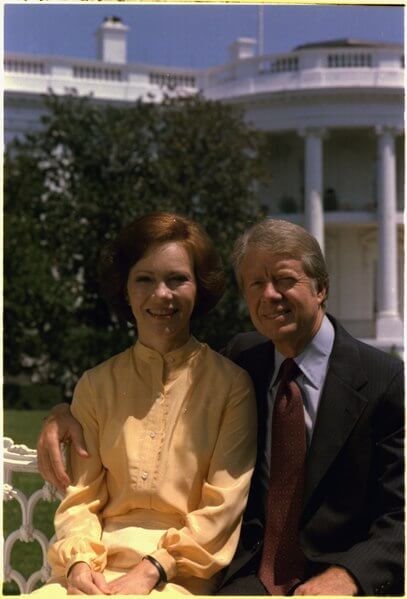Rosalynn Carter, a champion for mental health, a humanitarian, and the former first lady and spouse of former President Jimmy Carter, passes away at the age of 96.
Rosalynn Carter is a passionate advocate for mental health reform during her time as the first lady.
She peacefully passed away on Sunday at the age of 96 in her home in Plains, Georgia.

Farewell to a First Lady
Former President Jimmy Carter, her husband, expressed, “Rosalynn was my equal partner in everything I ever accomplished. She gave me wise guidance and encouragement when I needed it. As long as Rosalynn was in the world, I always knew somebody loved and supported me.”
Their relationship was a true American story, a genuine lifelong partnership.
When Jimmy Carter faced a brain cancer diagnosis in 2015, he was asked about his proudest accomplishment.
Without hesitation, he declared it was marrying Rosalynn, considering it the pinnacle of his life.

READ ALSO: Always The Six Of Us: The ‘Friends’ Cast Celebrates The Life And Legacy Of Matthew Perry
Rosalynn Carter’s Journey
The Carter Center shared on Friday that the former first lady had entered hospice care. She’s been diagnosed with dementia in May.
Her husband had started home hospice care in February.
Despite Jimmy Carter’s presidency facing challenges, including the Iran hostage crisis, Rosalynn stood by him, offering support and counsel.
The couple transformed the post-presidency landscape. They dedicated themselves to global initiatives for peace, human rights, and disease prevention.
They did this through The Carter Center, an Atlanta-based organization. Their impact was not only felt nationally but also internationally.
Reflecting on the Legacy

First lady Jill Biden acknowledged Rosalynn Carter’s contributions to mental health, caregiving, and women’s rights during a holiday event.
She urged people to include the Carter family in their prayers.
President Joe Biden commended the Carter family, emphasizing the grace they brought to the office.
Rosalynn Carter’s legacy extends beyond politics, leaving an indelible mark on mental health advocacy and humanitarian efforts.
Banner photo by White House via Wikimedia Commons.





